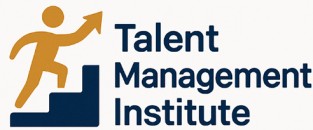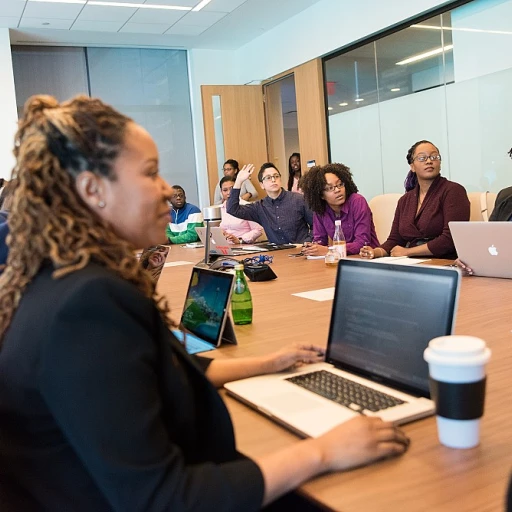Understanding the South Central Human Relations Center
Delving Into the Purpose and Functionality of a Comprehensive Support Center
The South Central Human Relations Center serves as a crucial hub in the arena of talent management, providing a wide array of services aimed at enhancing the well-being and capabilities of individuals and organizations alike. This center stands out due to its comprehensive approach which includes mental health aid, therapy, and counseling, essential for maintaining a healthy workforce. With the primary focus on mental health services, the center ensures that individuals and families receive necessary support to cope with various challenges. Whether it's through outpatient treatment options or more intensive residential programs, the center offers solutions tailored to diverse needs. A critical component of their work includes behavioral health services, aimed at facilitating recovery and promoting healthy mental well-being. Understanding the financial constraints many face in accessing healthcare, the center provides a sliding fee scale and financial aid to help pay for services, thus making health care more accessible. This inclusivity also extends to those with health insurance, ensuring that everyone can find the help they need without financial distress. The center’s outreach efforts are vital, helping individuals find community support and other resources needed for comprehensive recovery. Furthermore, the South Central Human Relations Center plays a significant role in talent management by promoting ongoing education and development through its various programs. This encourages not only personal growth but also greater organizational success, fostering an environment where employees can thrive. For organizations aiming to manage talent effectively, understanding the multifaceted role of centers like these is imperative. They offer much-needed counseling services, therapy, and human relations support that can directly impact employee retention and satisfaction. By addressing mental health and stress, such centers contribute significantly to a more productive and engaged workforce. For those interested in delving deeper into how such organizations align with talent management strategies, exploring opportunities and roles in absolute works jobs can be enlightening. This exploration reveals how supportive infrastructures can bolster talent acquisition and management efforts.Key Challenges in Talent Management Today
Navigating Talent Management Challenges
Talent management has become a critical focus for organizations seeking to thrive in today’s competitive landscape. The South Central Human Relations Center acknowledges the pivotal role of effective talent management in fostering workplace success and employee well-being. However, several challenges persist that must be addressed to implement efficient talent management strategies.
One prominent challenge is the evolving needs of employees regarding mental health and support services. Organizations are recognizing the importance of providing access to health and mental health services, counseling, and therapy programs. By integrating behavioral health support into the workplace, companies aim to promote recovery and ensure a healthier work environment.
Healthcare-related challenges also emerge, as employees often seek help to pay for health insurance and outpatient treatment. As a result, organizations are developing solutions like sliding fee scales and financial aid to ensure all employees have access to necessary health care and support services.
Moreover, the increasing demand for employee education and development programs cannot be overstated. Companies are striving to create enticing talent acquisition and retention strategies to stay competitive. Providing pathways to education and continuous professional growth is paramount in maintaining a motivated and skilled workforce.
The complexity of navigating these challenges often requires a multi-faceted approach. In addition to health support and financial considerations, fostering human relations through community-building initiatives like family counseling and support services plays a vital role in addressing employee needs comprehensively.
South Central Human Relations Center stands at the forefront of addressing these key challenges, providing leadership and actionable insights for organizations. For further exploration of comprehensive strategies in talent management, take a look at this in-depth Talent Management in HR guide.
Strategies for Effective Talent Acquisition
Strategic Approaches to Acquiring Talent
In today's constantly evolving workplace landscape, the central human relations center plays a vital role in effectively acquiring talent. The South Central Human Relations Center sets itself apart by addressing not just professional needs but also personal aspects like mental health, thus offering comprehensive support services during the recruitment process. Understanding the intricacies of attracting the right talent involves more than traditional methods. It requires integrating various elements such as health services, mental and behavioral health considerations, and offering therapy options to ensure balanced employee well-being. Here's how organizations can strategically approach talent acquisition:- Personalized Recruitment Programs: Aligning recruitment processes with individual needs, including behavioral health accommodations, establishes a personalized touch. Programs designed with a focus on mental health and recovery can draw candidates who appreciate workplaces that prioritize comprehensive employee care.
- Inclusive Recruitment Strategies: Integrating human resources strategies that focus on diversity, such as providing education and support for substance abuse and offering family counseling options, helps create a welcoming environment. Such measures contribute positively to employer branding and attract diverse candidate pools.
- Flexible Financial Solutions: Implementing sliding fee scales or financial aid options reflects a company's commitment to equitable access. This can be crucial in attracting candidates who might otherwise face barriers to entry or concerns about health insurance coverage.
Employee Development and Retention
Building a Culture of Growth and Retention
Employee development and retention are vital components of any successful talent management strategy. While many organizations invest in acquiring new talent, the real challenge often lies in retaining and nurturing that talent. The South Central Human Relations Center plays a crucial role in this regard by offering comprehensive support services. One of the center’s core functions is providing mental health services to employees and their families. By offering access to counseling, therapy, and outpatient treatment, the center ensures that employees can find the help and support they need to address behavioral health issues. This holistic approach not only aids in recovery but also enhances overall employee well-being. Mental health is just one aspect of employee support. The center’s education and program initiatives also focus on skill development and continuous education, equipping employees with the tools they need to advance in their careers. With a sliding fee scale and financial aid options, these services are accessible to individuals across different financial backgrounds, helping to eliminate barriers. Moreover, the center collaborates with organizations to create a supportive work environment. This includes embedding family counseling opportunities as part of health insurance packages, ensuring that employees are not burdened by additional costs for essential services. By prioritizing a human-centric approach to care and support, the center fosters a stable workforce committed to personal and organizational growth. The comprehensive suite of services offered not only helps with employee retention but also boosts morale and enhances productivity. With the backing of such a supportive infrastructure, employees are more likely to remain loyal to their organization, reducing turnover rates and enhancing the company’s bottom line.The Role of Technology in Talent Management
The Transformative Power of Digital Innovations in Talent Management
Technology has become an integral part of modern talent management, transforming how organizations attract, retain, and develop their workforce. As organizations like the South Central Human Relations Center navigate the intricate aspects of behavioral health and employee support, integrating technology can enhance efficiency and efficacy in delivering health services and employee care.- Efficient Talent Acquisition: Innovative talent management platforms help organizations streamline recruitment, making it easier to find candidates who align with specific roles in mental health, counseling, and educational programs. These platforms often incorporate AI-driven tools to match potential candidates with open positions, taking into account the characteristics that would make a candidate successful in specific environments.
- Employee Support Services: Digital tools also play a critical role in providing mental health support and counseling services to employees. For a center focused on behavioral health, offering online therapy sessions and mental health app integration can ensure that employees have easy access to mental health services and support. This technology-driven approach provides flexibility, which is essential for outpatient treatment and those seeking financial aid options such as sliding fee scales.
- Ongoing Education and Development: Through technology, organizations can consistently offer educational programs and training modules tailored to the unique needs of their staff. This is especially relevant for professionals dealing with substance abuse and health care. Digital learning platforms ensure that employees at the South Central Human Relations Center stay informed about the latest treatments and best practices in mental health and family counseling.
- Data-Driven Decision Making: The ability to harness data analytics is invaluable. With comprehensive data analysis, organizations can make informed decisions about employee development, outreach strategies, and resource allocation. This analytical approach aids in understanding the nuances of health insurance coverage, fee scale adjustments, and the effective distribution of support services.













